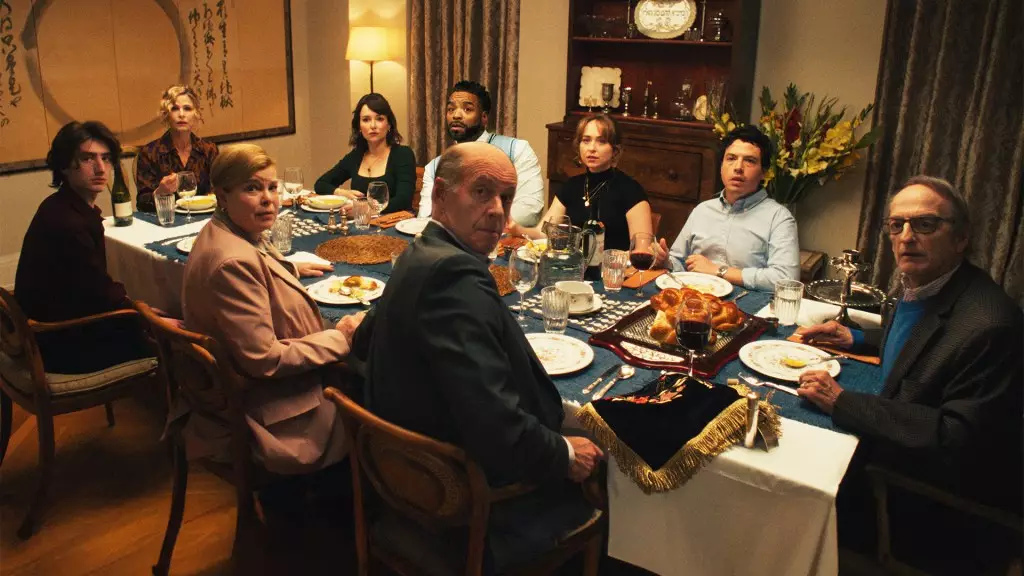In today’s saturated entertainment landscape, dominated by blockbuster franchises and formulaic content, independent films stand out not just for their distinct storytelling but for their remarkable resilience and capacity to outperform expectations. The recent success of Menemsha Films’ “Bad Shabbos,” which crossed the $1 million mark at the U.S. box office, exemplifies how well-crafted indie movies can carve out a significant niche even with limited theatrical runs. Rather than focusing solely on broad commercial appeal, these films often thrive through deliberate, sustained exposure—an approach that challenges the notion that only mass-market productions can achieve financial success.
This phenomenon underscores an important shift: consumers are increasingly seeking authentic, original content that offers a different perspective from mainstream fare. Films like “Hundreds of Beavers” and “Secret Mall Apartment” demonstrate that audiences are willing to embrace quirky, unconventional narratives. These titles often spike in popularity within local communities—college towns, regional cinemas—before gradually expanding outward, relying heavily on word of mouth and critical praise rather than aggressive marketing budgets. Their slow but steady build-up signifies a new model of theatrical success rooted in authenticity and cultural specificity.
Challenging the Market’s Monoculture: The Power of Niche Appeal
While Hollywood continues to chase global blockbusters, indie films tap into the undercurrents of cultural nuance and underrepresented stories, which resonate more deeply with specific audiences. The sustained run of “Bad Shabbos,” for example, isn’t just accidental; it’s a testament to the film’s genuine connection with viewers. Centered on the relatable tension of interfaith relationships and familial expectations, the film offers humor grounded in real-life dilemmas, providing a refreshing alternative to escapist spectacle.
Critically, the success of such films lies in their ability to generate word of mouth, which is arguably more powerful than traditional advertising. Neil Friedman of Menemsha Films perfectly captures this: the real key is keeping films in theaters long enough to cultivate organic popularity. For indie filmmakers and distributors, this is a strategic advantage often overlooked in the age of instant streaming. These movies demonstrate that if the product is compelling enough, a dedicated audience will turn out repeatedly, even in the face of fewer screens and less promotional blitz.
Distribution Strategy Demystified: Sustainability over Short-Term Gains
What sets these indie releases apart is their deliberate long-term approach. Unlike studio blockbusters that aim for immediate global launches, indie films often launch quietly in select cities or regions and grow through gradual expansion. “Bad Shabbos” started in Florida, then expanded to New York and LA, continuously building momentum as audiences and critics embraced it. This strategy leverages community engagement, local film festivals, and positive reviews, which cumulatively sustain theaters’ interest over several weeks or months.
Additionally, some indie titles succeed because they tap into cultural, regional, or niche interests that larger studios overlook. “Secret Mall Apartment,” with its clandestine storytelling rooted in historical pranks, appeals to a curious segment longing for authenticity and underground narratives. Similarly, “Pavements,” a documentary about an iconic indie band, sustains interest through passionate music communities, ensuring ongoing screenings and discussions—even without massive marketing budgets. These films prove that deep engagement with specific demographics can be more valuable than broad, but shallow, reach.
The Future of Indie Films: Authenticity as a Competitive Edge
Looking ahead, it’s clear that indie films possess an underrated advantage: authenticity. While big-budget movies rely on flashy effects and predictable plots, independent movies often dare to push boundaries both narratively and culturally. This authenticity resonates profoundly in an era where audiences have become increasingly skeptical of superficial content. The success stories from this year suggest that genuine storytelling, when matched with strategic release planning and a focus on community engagement, can deliver financial results competing with—and often surpassing—mass media productions.
In a market where consumer impatience and fatigue with formulaic entertainment are on the rise, indie films offer a breath of fresh air, reminding us that innovative storytelling and targeted distribution aren’t just aesthetic choices—they are pragmatic strategies for survival and success. As the industry continues to evolve, it becomes ever more apparent that indie cinema’s resilience is rooted in its capacity to connect deeply with audiences craving originality and authenticity. This isn’t just a passing trend; it’s a sustainable path forward for passionate filmmakers willing to embrace the slow, deliberate power of niche storytelling.

